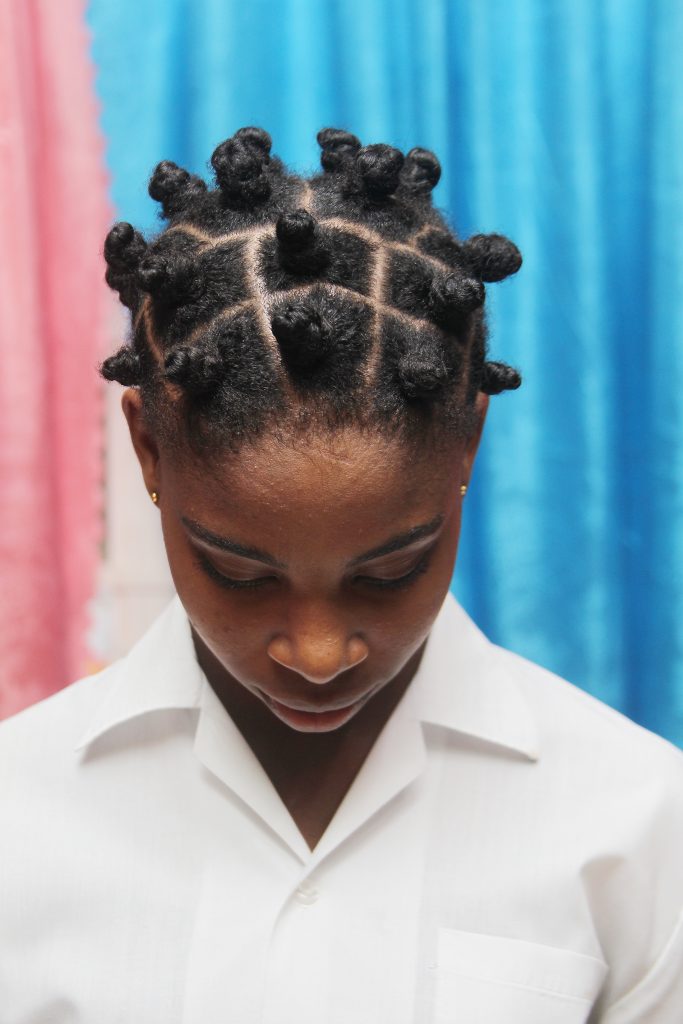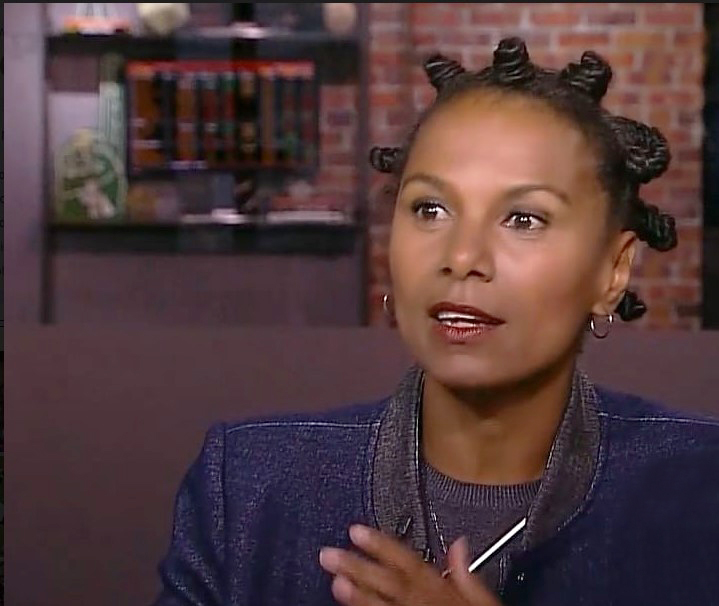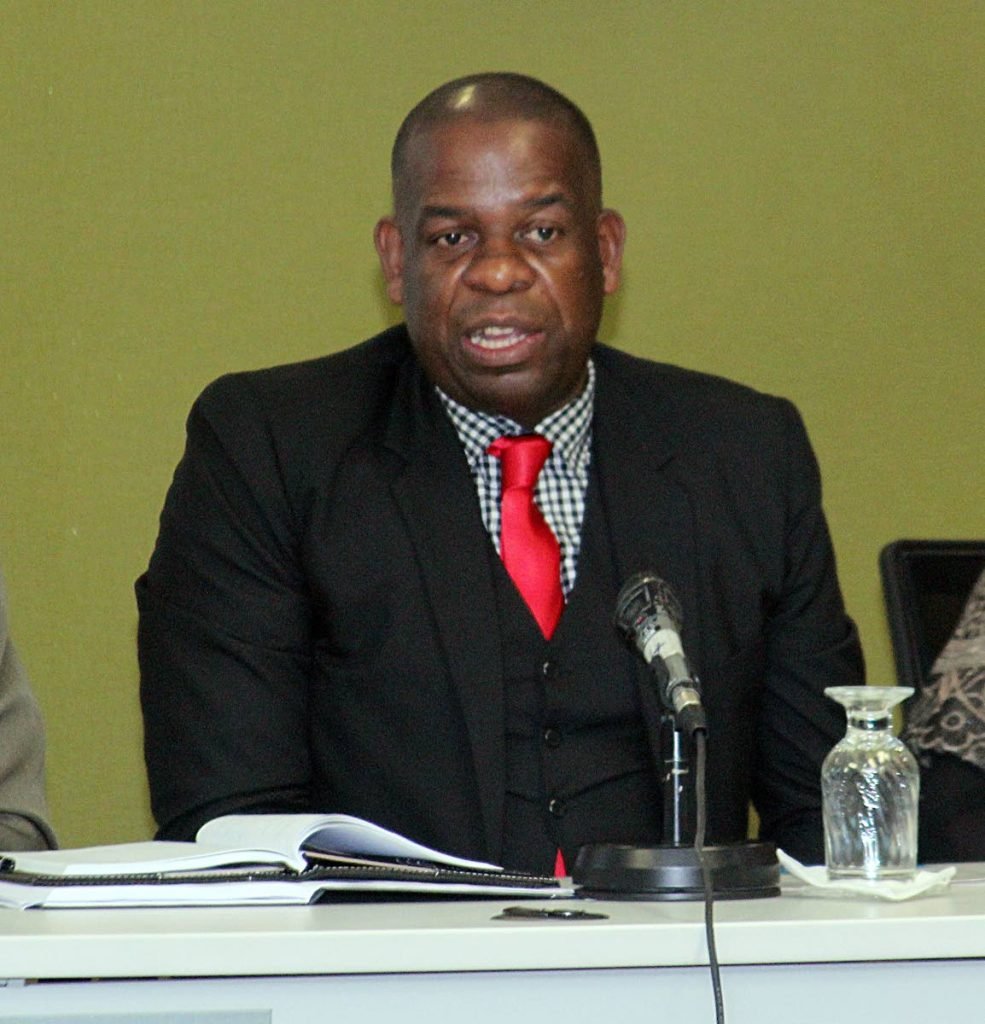WHAT’S WRONG?

MINISTER in the Ministry of Education Dr Lovell Francis has thrown his support behind the embattled form five student of St Stephen’s College, who is at the centre of a controversy because of the way she wears her natural hair to school.
Amidst the swirling controversy that has already resulted in a pre-action protocol letter being delivered to principal Allison Sargeant, on behalf of the child’s mother, Leiselle Morton-Taylor, Francis said he he didn’t see what the fuss was about.
“I didn’t see anything wrong with the hairstyles, personally,” Francis told the Newsday yesterday. He was reacting to a complaint of victimisation and discrimination by Morton-Taylor because of the way she combs her daughter’s natural hair.
A proud graduate of St Stephen’s College, Francis said he saw the photos the child’s mother posted on Facebook and saw nothing wrong with the majority, except one which he felt should be worn at home and not at school.
He said while he understands schools need to enforce rules, “I think if you have a certain kind of hair, there are certain styles that are appropriate for it.”

He said St Stephen’s has always prided itself in not only educating students, but allowing them the freedom, “to have expression of thought, but also to conform with school rules.
“So, the ministry is all in favour of having school rules.”
The contentious issue has also attracted the attention of Facebook’s global chief diversity officer, Trinidadian Maxine Williams, who said she was saddened to read about the child’s struggles in yesterday’s Newsday.
“From as long as I can remember, my hair has been an "issue" for others. However, at no time was it a factor that impacted my ability to learn and perform in any way,” Williams wrote in a Facebook post.
“From St Joseph's Convent PoS in Trinidad, to Yale University in the US, and Oxford University in the UK as a Rhodes scholar, my brain operated on a different system from my hair follicles...and I have no evidence that my hair affected the ability of others to learn either.”
Williams, an attorney, said she was sad, “that another little girl like me, with the beautiful hair she was born with, neatly presented, is being made to think it's an ‘issue’ still...”
Morton-Taylor said for the past year, she has sought intervention and an amicable solution to the issue from the school’s administrators to the South Eastern Educational District, the Ministry of Education and the Anglican Church, with no success.
Frustrated by the continuous upbraiding of her daughter, she took to Facebook to vent her annoyance and post photographs of her daughter’s neatly done hairstyles.
She said she has four children, including three girls with thick natural hair, and she combs them in advance and in styles that will keep to save time as she has to get to work at 7 am every day.
Attorney Jason Jones, acting on her behalf, wrote to the principal on Wednesday and copied the letter to chairman of the Anglican education board and the office of the director of school supervision. The letter requested putting an end to the adverse comments and disciplinary action against the student or face legal proceedings.
Jones said Morton-Taylor is in favour of a modern approach to engage in an amicable way to resolve the conflict rather than engage in adversarial approach.
Francis said he is not above making a personal intervention to facilitate a discussion and maybe some negotiation between the school and the parent involved, instead of any kind of polarising discussion or argument.
“I think it is something that could be sorted out by having a conversation, between the school and the parents. I think too much in this country right now ends up always being adversarial, where a conversation could solve the problem.

“It is my intention that the ministry facilitate that kind of discussion and we come to a reasonable agreement in this.”
Adding to the debate, president of the Principal’s Association, Lance Mottley said it is a very tricky issue, but principals are responsible for the carrying out the ministry’s dress code stipulations.
Mottley said while there are written and unwritten guidelines, principals must be able to communicate effectively what is acceptable and what is not and once that is done parents ought to comply.
“We are an evolving society part of the growing pains and we cannot legislate all aspects of dress codes. We give guidelines. Children must dress modestly as stipulated by the ministry and not as though they are going out to some kind of party. They must dress like school children in keeping with their profession, which is a student.”

Comments
"WHAT’S WRONG?"